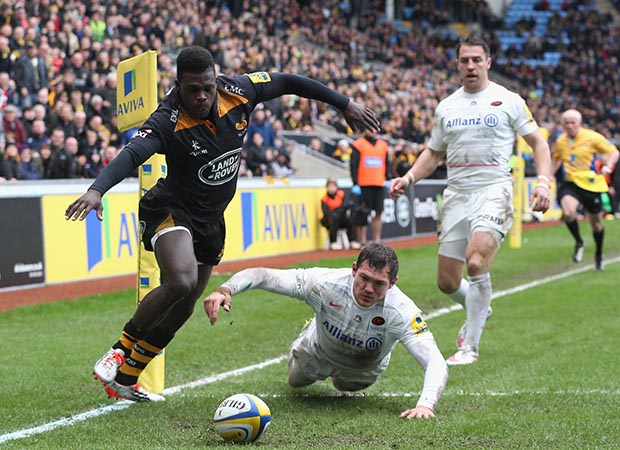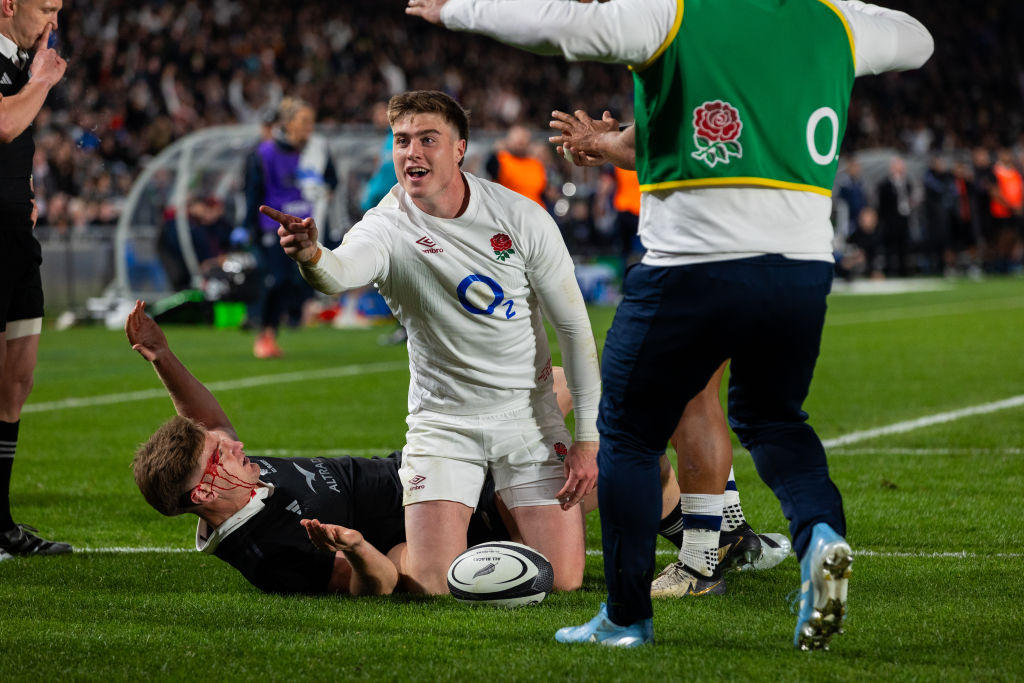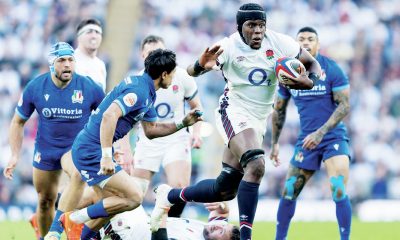
 The exclusion of Steffon Armitage and Nick Abendanon had been well documented before the selection of England‘s 50 man World Cup training squad, and it’s been good in one sense that it’s been put to bed. The decision to make the statement that players would not be selected from overseas, unless in exceptional circumstances, was initially put in because of Jonny Wilkinson’s departure to France.
The exclusion of Steffon Armitage and Nick Abendanon had been well documented before the selection of England‘s 50 man World Cup training squad, and it’s been good in one sense that it’s been put to bed. The decision to make the statement that players would not be selected from overseas, unless in exceptional circumstances, was initially put in because of Jonny Wilkinson’s departure to France.
With hindsight, the clause is unfortunate because it could all have been done less formally. The RFU could have left it to the England coach to deal with by saying it’s unlikely overseas-based players will be picked, but ultimately it is the coach’s selection decision, full stop. You don’t need to skirt around these issues.
It’s a good and a bad thing for England. Bad in the sense that Armitage has far more impact on a game than Calum Clark or Matt Kvesic – and if Chris Robshaw was to get injured he would be a huge asset to this squad. Armitage was pencilled into this World Cup squad at the start of the season, but the pressure built, and England have made a big statement by saying unequivocally that you have to play your rugby in the Premiership to be eligible.
Now, even if a player like Manu Tuilagi went to France, I am sure he would not be selected by England. If someone playing as well as Armitage is not selected then nobody will be. That is why it is time to get rid of the exceptional circumstances clause. It no longer has any validity or meaning.
What Stuart Lancaster has done in these four seasons in charge is to build a tight, respectful unit who realise that if you step out of line you won’t be selected. There’s expulsion if you go to France, suspension if you step out of line like Tuilagi or Danny Care, and a lot of homework if you decide to stick around!
The best head coaches in most sports talk about the strength of the culture and environment around their teams, and Lancaster has worked hard to create that. My experience of the current England camp is that the culture is good – there is a feeling of mutual respect, a good work ethic, and it is working. The most obvious sign of that is, win or lose, there is a feelgood factor surrounding the squad.
There will be disappointment for the likes of Christian Wade and Matt Banahan not to have made the cut in the backs. Wade, wow! What a tough call not to even make the 50. Lancaster can look the guy in the eyes and say that Chris Ashton and David Strettle have scored tries, that Anthony Watson and Jack Nowell have not let England down, and that Jonny May and Marland Yarde deserve another chance, but it is still a long drop.
Two years ago Wade was doing well for England in Argentina, and then he got the call from the Lions to join them in Australia. We haven’t heard from him at test level since then – instead, all he’s done is score great tries for Wasps. Banahan has had a good season for Bath and offers something completely different to any other England wing with his size and strength, and on form alone he cannot be far away.
What makes being left out even harder is that 50 players is pretty well everyone in the Premiership whose been given a run by the Saxons, including young players like Luke Cowan-Dickie, Maro Itoje, Henry Slade and Anthony Watson. These are the boys who have shown that they have become men by coping with the physical difference between U20 and senior rugby.
Another plus is that overall the pack is so interchangeable, with Ben Morgan covered by Billy Vunipola at No.8, Joe Marler by Alex Corbisiero at loosehead, Dan Cole by David Wilson at tighthead, and the list goes on. It has great depth in the pack and backs, but there is also inexperience outside the forwards.
On the debit side I don’t see a lot of gnarly rugby nous in this squad. By that I mean players with good rugby brains who can adapt to what happens on the field – players who “get it”. Geoff Parling is one of the few forwards with that sort of nous, but there is no one else up front who has it.
England has a tendency to produce players who like to be led by coaches, rather than to lead themselves, and that’s why the big addition to the England squad this season is George Ford. He has intuition on tap. Ford knows how to play the game better than most coaches, and that includes Lancaster, Graham Rowntree, Andy Farrell, and probably Mike Catt. The Bath fly-half has true rugby talent – the sort that is not just about your physical attributes, but your mind. It’s about the integration of mind, body, and soul, and with Ford everything is aligned at the moment.
That’s not to say he does not need coaches to give him the equivalent of an architectural plan, but then they must leave him to get on and do the building. Ford has the ability to play any game he wants, whether it is tight or open, and if players like Jonathan Joseph and Mike Brown are on the same intuitive wavelength as their fly-half, England will be in business.
As for the pack, most English forwards do not have natural handling ability. The big release valve is having big men who are creative runners with handling skills, as well as explosive runners. England are very competitive at the set-piece and the maul, but their forwards cannot flick a switch and go creative in terms of angles and off-loading – and not many sides can.
The trick, perhaps, is realising your limitations, because if the England forwards do the set-piece and breakdown basics to the highest order it will still be good enough to win a World Cup.
In the backline there is still so much inexperience between Ben Youngs and Brown, but there’s not much that can be done about that.
Finally, the size of the squad is a bit overwhelming. I can’t imagine 50 people on a rugby pitch, let alone all of them training together. I’m a bit stuck with the logistics, because some will know already that they will not make the final 31, and a class of 20 will learn far more in school than a class of 35.
I wouldn’t like to train in a squad that big. You feel lost, and I used to call big groups like that “mixed ability” sessions, because not everyone was at the same level. They could be a bit frustrating.
It wasn’t for me, but times change, and I wouldn’t question Lancaster’s organisational ability. You only need a bad run of injuries to be badly disrupted, so probably the theory is to get everyone who could be involved out there.

1 Comment
You must be logged in to post a comment Login
Leave a Reply
Cancel reply
Leave a Reply
You must be logged in to post a comment.

British and Irish Lions
From Leicester reject to a British and Irish Lion: Tommy Freeman’s stellar rise
Latest News
Steve Diamond: Franchise league a good idea

International Rugby
Touring Japan with Wales is my goal says Dan Edwards
























Pingback: post